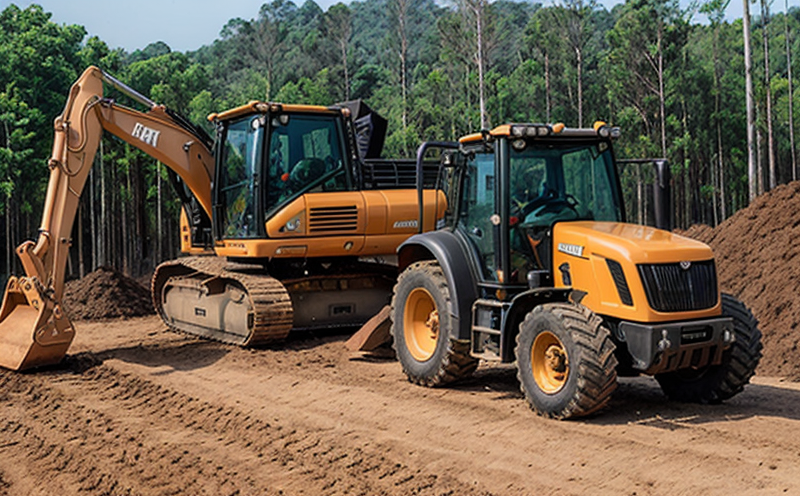
-
Industrial Equipment Certification-
Quality and Reliability Certification-
Certification for Equipment Longevity and Durability
We provide comprehensive solutions designed to help our clients mitigate risks, enhance performance, and excel in key areas such as quality, health & safety, environmental sustainability, and social responsibility.
Discover
For many years, our organization has been operating successfully, boasting modern laboratories that meet international standards. These laboratories are equipped with the latest technology devices and equipment, and we have built a strong team of experienced and trained personnel to operate them.
DiscoverWelcome to Eurolab, your partner in pioneering solutions that encompass every facet of life. We are committed to delivering comprehensive Assurance, Testing, Inspection, and Certification services, empowering our global clientele with the ultimate confidence in their products and processes.
Discover
-
Industrial Equipment Certification-
Quality and Reliability Certification-
Certification for Equipment Longevity and DurabilityCertification for Equipment Longevity and Durability: Ensuring Reliability and Efficiency
As industries continue to evolve and become more complex, the importance of equipment longevity and durability has never been more critical. In todays fast-paced world, companies need reliable machinery that can withstand the rigors of continuous operation without breaking down or requiring frequent repairs. One way to ensure this reliability is through certification programs for equipment longevity and durability.
Why Certification Matters
Certification for equipment longevity and durability is a process by which a third-party organization verifies that a piece of equipment meets certain standards for performance, quality, and reliability. This certification can be achieved through various schemes, including those offered by industry organizations, government agencies, or independent testing labs. The benefits of equipment certification are numerous:
Improved Reliability: Certification ensures that the equipment has been tested and proven to meet specific standards for durability and longevity, reducing the risk of premature failure.
Increased Efficiency: Certified equipment is designed to operate at optimal levels, minimizing downtime and maximizing productivity.
Enhanced Safety: Certification involves testing for safety features, such as emergency stops or guarding, which can prevent accidents and injuries.
Types of Equipment Certification
There are several types of certification programs available for equipment longevity and durability. Some of the most common include:
ISO 9001: This is an international standard for quality management systems that ensures a companys processes meet specific requirements for product quality and reliability.
UL (Underwriters Laboratories) Certification: UL offers various certifications for safety and performance, including those related to equipment longevity and durability.
TUV Rheinland Certification: TUV Rheinland is an independent testing organization that offers certification for equipment in various industries, including manufacturing and energy.
API (American Petroleum Institute) Certification: API offers certification for equipment used in the oil and gas industry, focusing on performance, safety, and reliability.
Detailed Information on Industry-Specific Certifications

Lighting and Optical Device Testing
Lighting and Optical Device Testing: Ensuring Performance and Safety Lighting and optical devices a...

Environmental Simulation Testing
Environmental Simulation Testing: A Comprehensive Guide In todays world, where technology is rapidl...

Food Safety and Testing
Food Safety and Testing: Ensuring the Quality of Our Food As consumers, we expect our food to be sa...

Trade and Government Regulations
Trade and government regulations play a vital role in shaping the global economy. These regulations ...

Automotive Compliance and Certification
Automotive Compliance and Certification: Ensuring Safety and Efficiency The automotive industry is ...

Construction and Engineering Compliance
Construction and Engineering Compliance: Ensuring Safety, Quality, and Regulatory Adherence In the ...

Renewable Energy Testing and Standards
Renewable Energy Testing and Standards: Ensuring a Sustainable Future The world is rapidly transiti...

Agricultural Equipment Certification
Agricultural equipment certification is a process that ensures agricultural machinery meets specific...

Consumer Product Safety
Consumer Product Safety: Protecting Consumers from Harmful Products As a consumer, you have the rig...

Electrical and Electromagnetic Testing
Electrical and Electromagnetic Testing: A Comprehensive Guide Introduction Electrical and electrom...

MDR Testing and Compliance
MDR Testing and Compliance: A Comprehensive Guide The Medical Device Regulation (MDR) is a comprehe...

NEBS and Telecommunication Standards
Network Equipment Building System (NEBS) and Telecommunication Standards The Network Equipment Bu...

Battery Testing and Safety
Battery Testing and Safety: A Comprehensive Guide As technology continues to advance, battery-power...

Healthcare and Medical Devices
The Evolution of Healthcare and Medical Devices: Trends, Innovations, and Challenges The healthcare...

Electromechanical Safety Certification
Electromechanical Safety Certification: Ensuring Compliance and Protecting Lives In todays intercon...

Environmental Impact Assessment
Environmental Impact Assessment: A Comprehensive Guide Environmental Impact Assessment (EIA) is a c...

Railway Industry Compliance
Railway Industry Compliance: Ensuring Safety and Efficiency The railway industry is a critical comp...

Energy and Sustainability Standards
In today’s rapidly evolving world, businesses face increasing pressure to meet global energy a...

Cosmetic Product Testing
The Complex World of Cosmetic Product Testing The cosmetics industry is a multi-billion-dollar ma...

Fire Safety and Prevention Standards
Fire Safety and Prevention Standards: Protecting Lives and Property Fire safety and prevention stan...

Pressure Vessels and Installations Testing
Pressure Vessels and Installations Testing Pressure vessels are a critical component of various ind...

Chemical Safety and Certification
Chemical safety and certification are critical in ensuring the safe management of products and proce...

IT and Data Center Certification
IT and Data Center Certification: Understanding the Importance and Benefits The field of Informatio...

Military Equipment Standards
Military Equipment Standards: Ensuring Effectiveness and Safety The use of military equipment is a ...

Pharmaceutical Compliance
Pharmaceutical compliance refers to the adherence of pharmaceutical companies and organizations to l...

Hospitality and Tourism Certification
Hospitality and Tourism Certification: Unlocking Opportunities in the Industry The hospitality and ...

Industrial Equipment Certification
Industrial equipment certification is a critical process that ensures industrial equipment meets spe...

Aviation and Aerospace Testing
Aviation and Aerospace Testing: Ensuring Safety and Efficiency The aviation and aerospace industr...

Product and Retail Standards
Product and Retail Standards: Ensuring Quality and Safety for Consumers In todays competitive marke...

Transportation and Logistics Certification
Transportation and Logistics Certification: A Comprehensive Guide The transportation and logistics ...